Why Is My Phone So Slow After iOS 18?
With every new iOS release, iPhone users anticipate fresh features, enhanced security, and improved performance. However, following the release of iOS 18, many users have reported issues with their phones running slowly. Be assured that you are not the only one dealing with comparable issues. A slow phone can hinder your daily tasks, making it frustrating to use essential apps, access media, or complete simple tasks like texting. In this article, we will explore why your phone might be slowing down after updating to iOS 18 and how to resolve these issues.
1. Why Is My Phone So Slow After iOS 18?
After updating to iOS 18, several factors could be contributing to your phone’s sluggish performance:
- Background Processes: Right after updating to a new iOS version, your phone might be running multiple background processes. These processes include indexing, app reconfiguration, and data syncing, which can put a heavy load on your phone’s CPU, causing it to slow down temporarily.
- Incompatible Apps: App developers need to update their software to be compatible with each new iOS version. If some of your apps haven’t been updated for iOS 18, they might perform poorly, freeze, or crash, contributing to the overall slowness of your device.
- Older Hardware: If you are using an older iPhone model, it’s possible that iOS 18’s new features demand more processing power than your device can comfortably handle. Delays and sluggishness could occur if older hardware is unable to run the updated software.
- Storage Issues: Over time, your iPhone accumulates data in the form of photos, apps, cache, and other files. A major update like iOS 18 might require more free storage space to run efficiently. Your device’s performance may degrade after an update if its storage is almost full.
- Battery Health: The performance of iPhones is closely tied to their battery health. If your battery life is getting low, iOS may reduce the phone’s performance to keep it from dying completely. After updating to iOS 18, users with worn-out batteries may notice reduced performance even more.
- New Features: iOS 18 introduces several new features, some of which might run in the background, consuming more resources than before. If your phone’s hardware isn’t optimized for these features, this can cause performance issues.
2. How to Resolve iPhone So Slow After iOS 18
If you’ve noticed your iPhone becoming slow after updating to iOS 18, try these steps to resolve the issue:
- Restart Your Phone
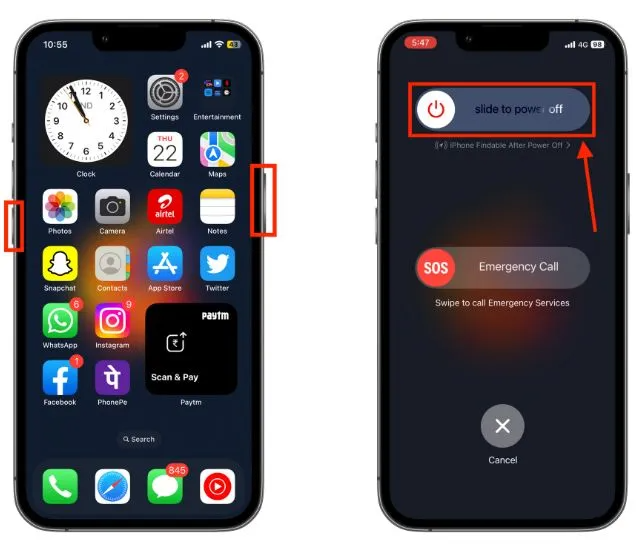
- Update Your Apps

- Check Storage and Free Up Space
Navigate to Settings > General > iPhone Storage to see how much free space is available on your device. To free up space, uninstall unwanted apps, remove unnecessary images, and remove huge files.
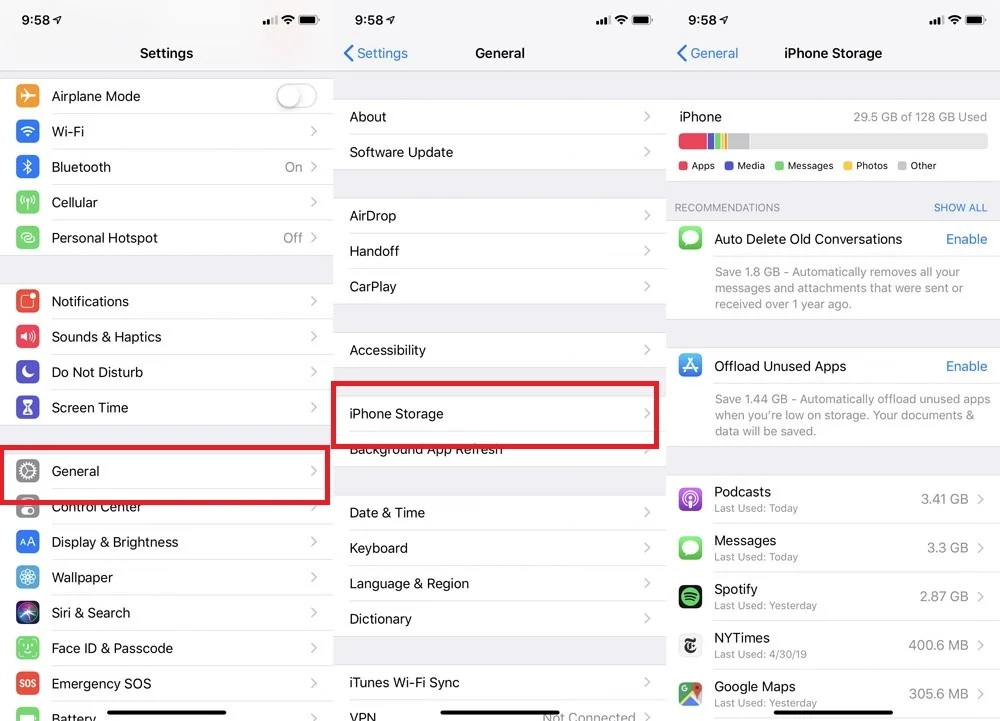
- Disable Unnecessary Features

- Reset All Settings
If your phone is still slow, resetting your settings might help. This option restores settings like network configurations and display settings without deleting your data. To erase all of your settings, navigate to the Settings menu, then select General, and finally, Reset all settings.
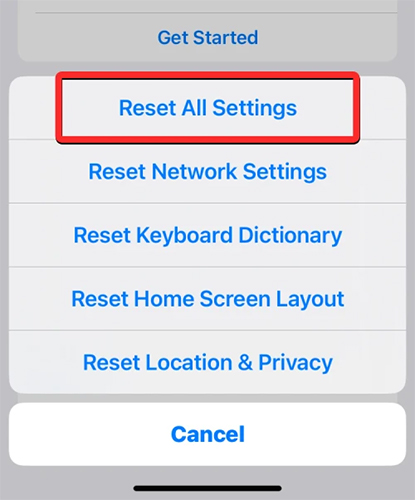
- Check Battery Health
A degraded battery can affect your phone’s performance. Go to Settings > Battery > Battery Health & Charging to check your battery’s condition. If the battery is significantly worn out, you might consider getting it replaced to restore your phone’s performance.

- Restore Your iPhone
You may try resetting your iPhone to factory settings as a final option if the solutions provided above don’t fix your problem. This wipes all data and settings from your phone, giving you a clean slate to work with. Before doing this, ensure you back up all important data via iCloud or iTunes.
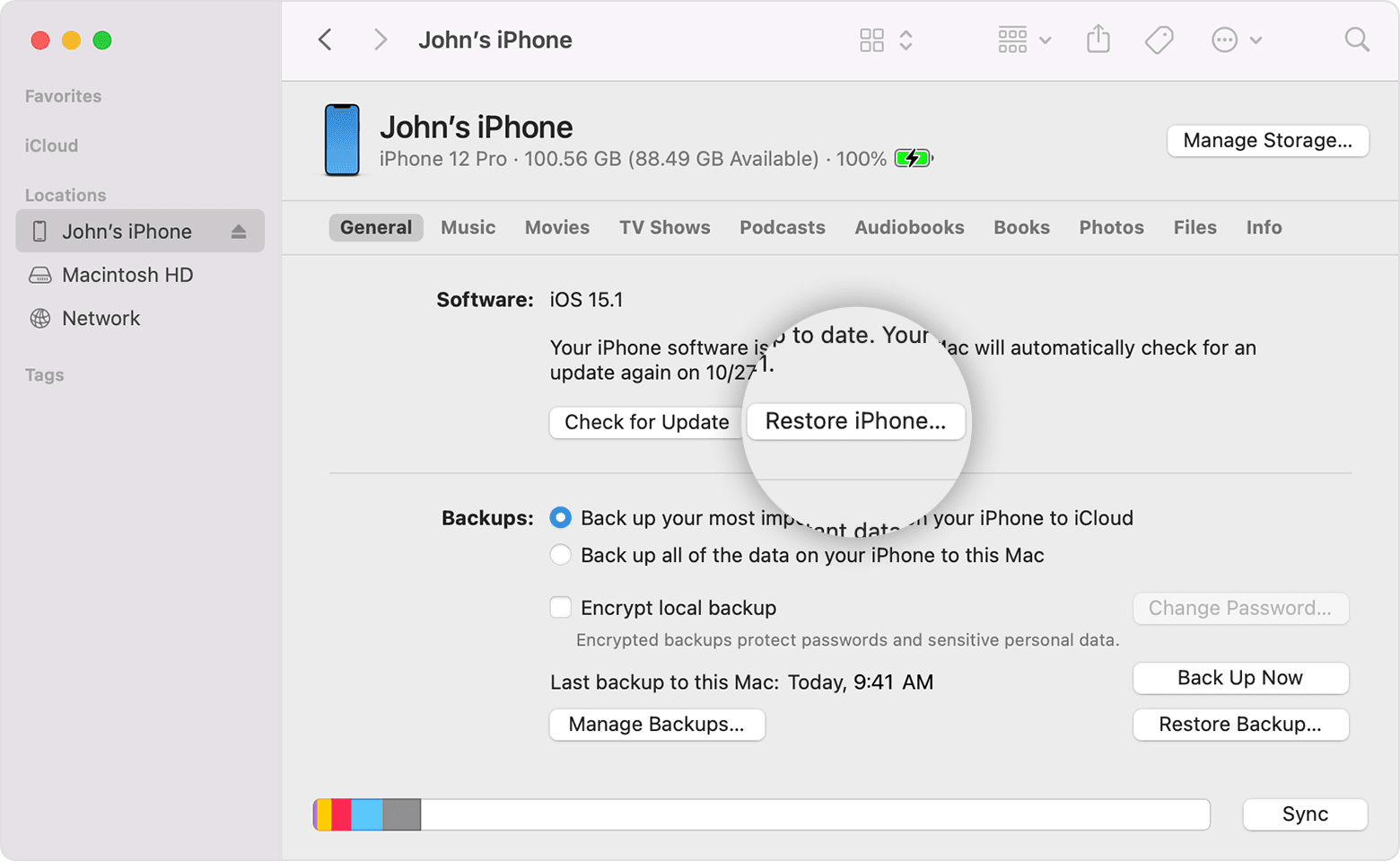
3. iOS 18 Keeps Crashing? Try AimerLab FixMate
If your iPhone is not only slow but also experiencing frequent crashes after updating to iOS 18, the problem might be more significant than just performance issues. Sometimes, system glitches, corrupted files, or faulty updates can cause your iPhone to crash repeatedly. Manually attempting to resolve the issue may not be sufficient in such instances.
AimerLab FixMate is a powerful tool designed to fix iPhone issues such as crashes, freezes, and update problems. Here’s how AimerLab FixMate can help if iOS 18 keeps crashing:
Step 1: Get the AimerLab FixMate software for your Windows, then follow the on-screen instructions to install it.
Step 2: Use a USB cable to connect your iPhone to the computer where you installed FixMate; Open the software, and it should automatically detect your iPhone; Click “Start” to begin the process.
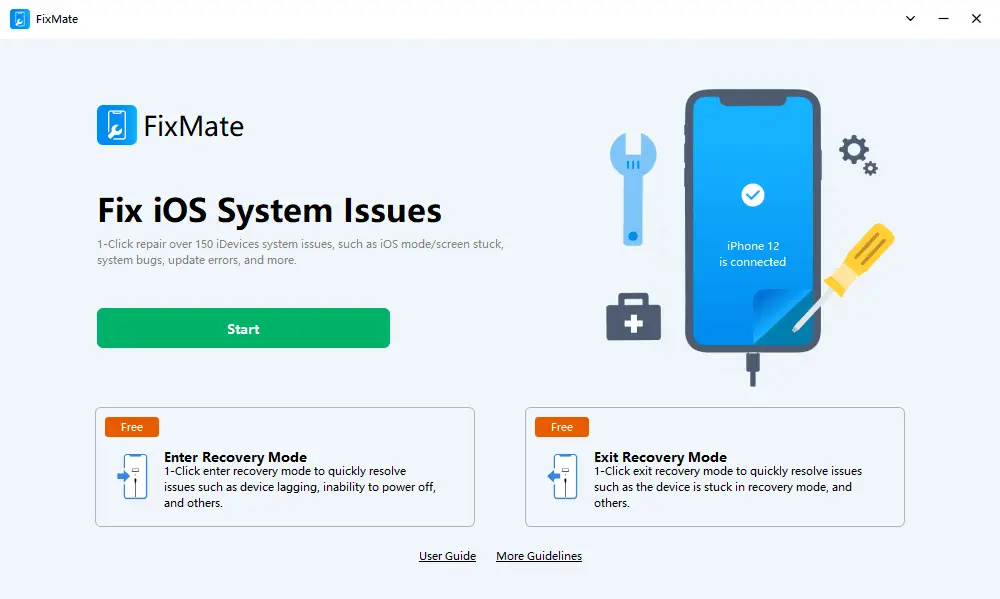
Step 3: Select the “Standard Repair” option, which is ideal for fixing issues like frequent crashes, freezing, and sluggish performance without causing data loss.
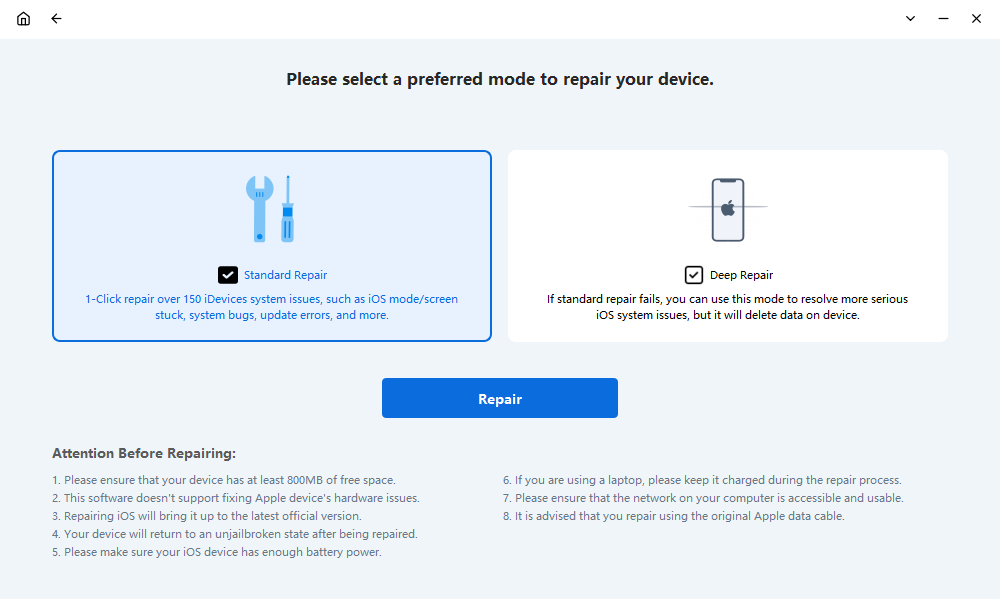
Step 4: Select the iOS 18 firmware version that is compatible with your device, then click “Repair” to initiate the firmware download.
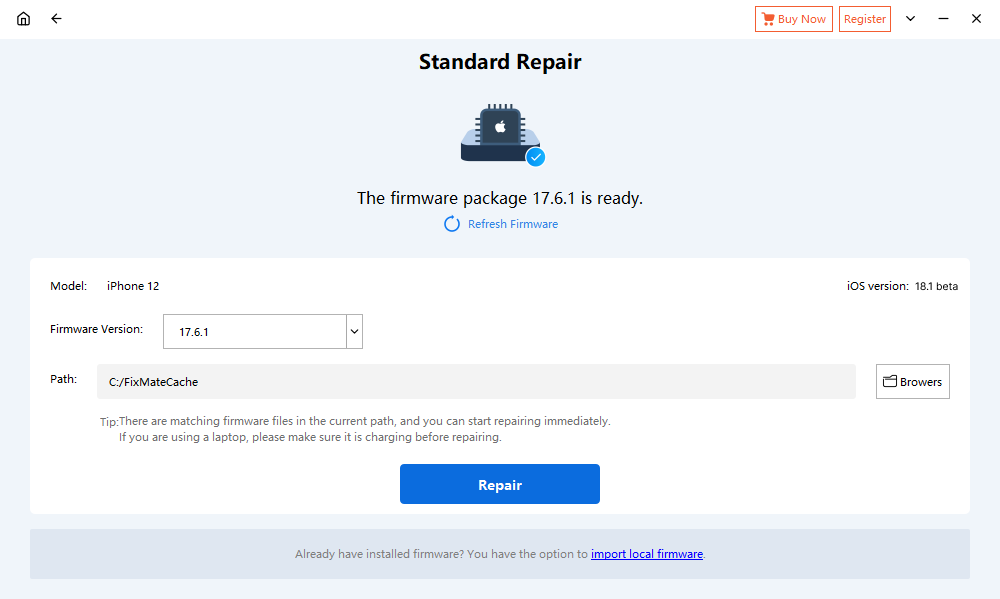
Step 5: Press the “Start Repair” button after the firmware has been downloaded, AimerLab FixMate will start mending your iPhone, resolving crashes and other system issues.
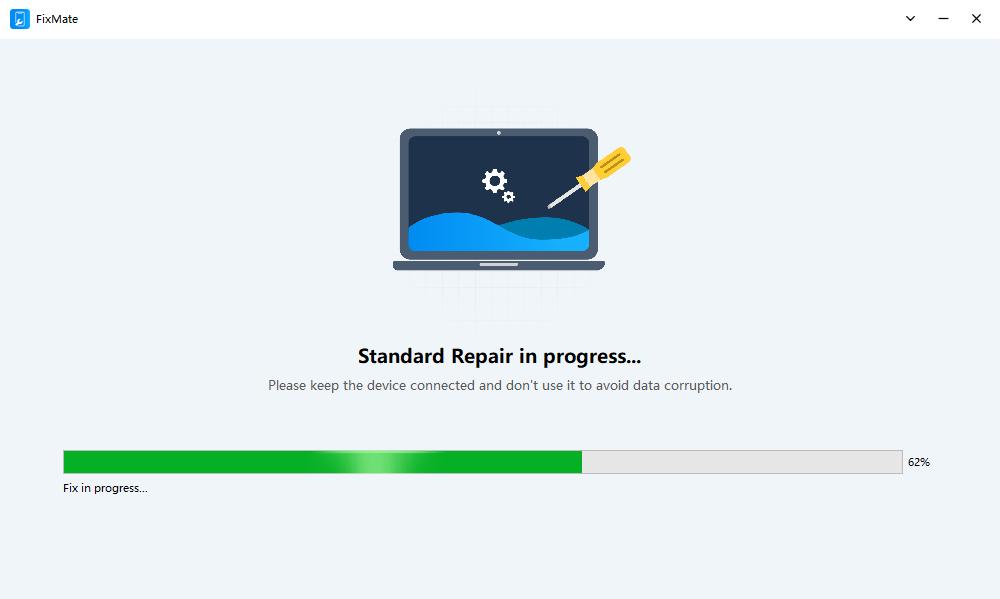
Step 6: After the process is complete, your iPhone will be restored to working condition without crashes, and all your data will be preserved.
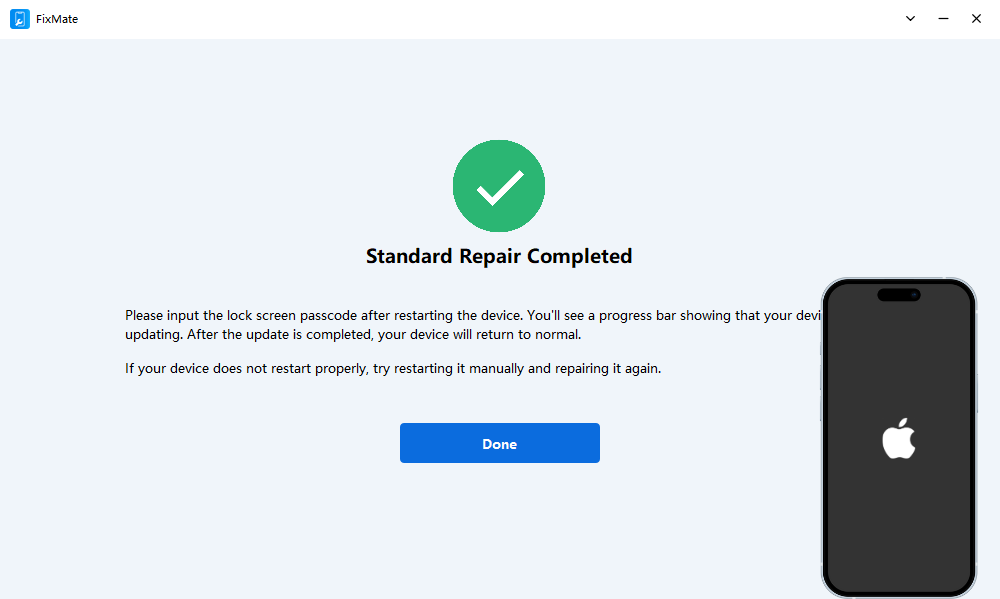
4. Conclusion
In conclusion, iOS 18 may cause performance issues such as slowdowns and crashes, often due to background processes, storage limitations, or outdated apps. Simple fixes like restarting your phone, updating apps, and freeing up space can help. However, if the problem persists and iOS 18 continues to crash, AimerLab FixMate is a highly recommended solution. This user-friendly tool efficiently resolves iOS-related issues without data loss, helping you restore your iPhone’s performance and enjoy the benefits of iOS 18 without disruptions.
- Methods for Tracking Location on a Verizon iPhone 15 Max
- Why Can’t I See My Child’s Location on iPhone?
- How to Fix iPhone 16/16 Pro Stuck on Hello Screen?
- How to Resolve Work Location Tag Not Working in iOS 18 Weather?
- Why My iPhone Is Stuck on the White Screen and How to Fix It?
- Solutions to Fix RCS Not Working on iOS 18




